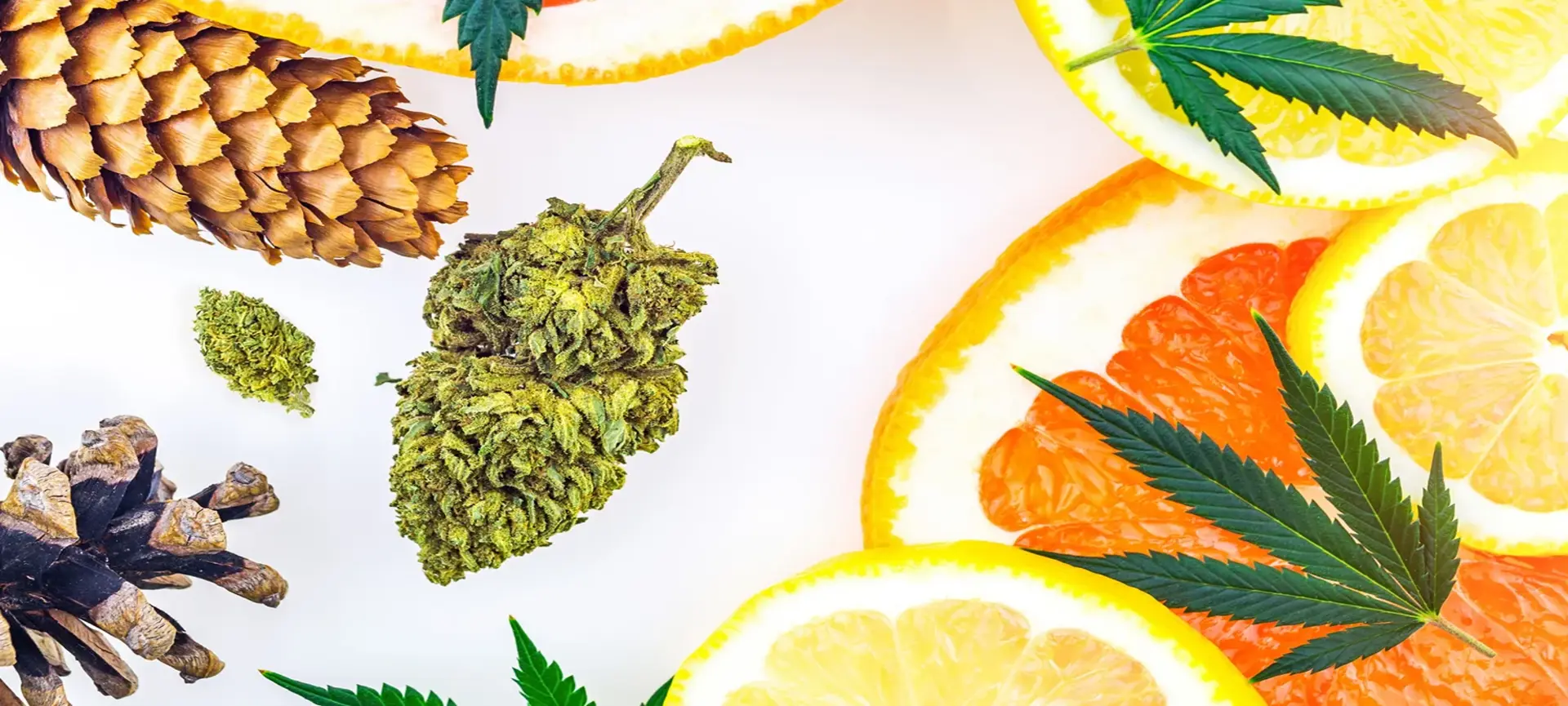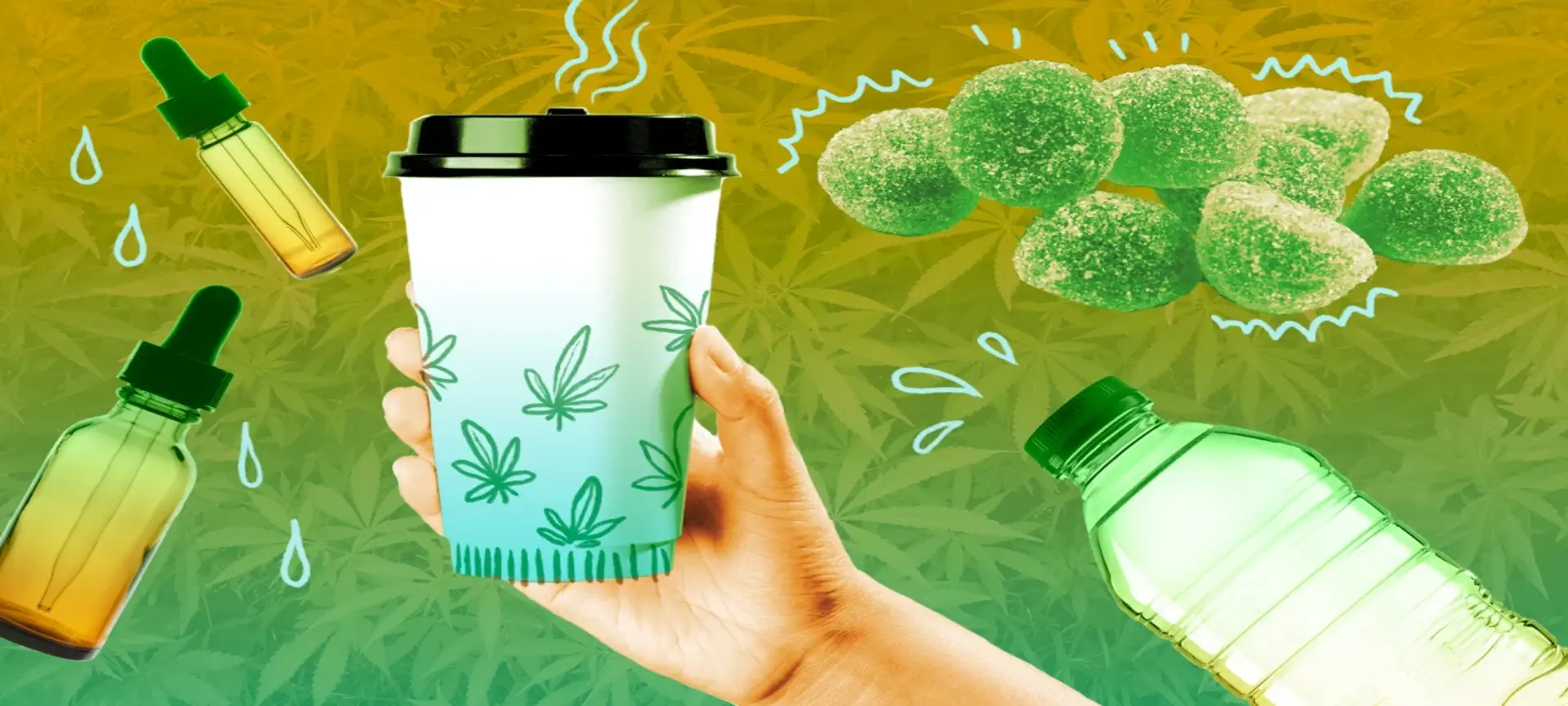What Is THC?
Tetrahydrocannabinol, or THC, is the compound in cannabis that’s primarily responsible for its intoxicating, psychoactive effects. Discover how THC works, its potential effects, tips for selecting products and more.
Roughly 100 naturally occurring chemical compounds — called cannabinoids — are found in the cannabis plant. Of those, THC (scientific name: delta-9 tetrahydrocannabinol) is the one mainly responsible for the psychoactive and intoxicating effects of cannabis consumption. Keep reading to learn about how THC works in the body, its potential effects (both positive and negative), how to choose products based on potency and how THC compares to CBD.
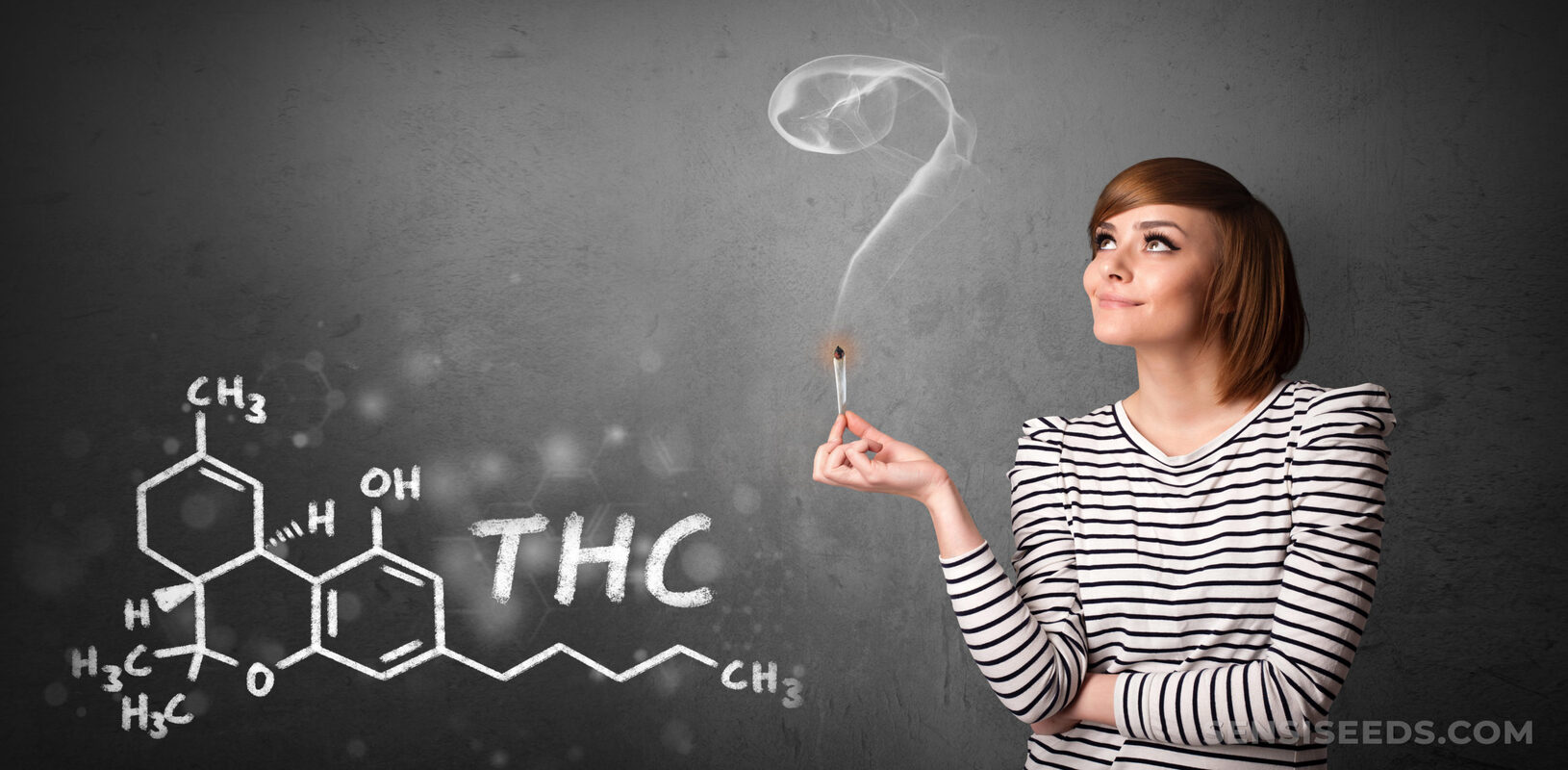
How THC works
As a cannabinoid, THC works by interacting with the body’s endocannabinoid system (ECS). Studies suggest this system plays a role in regulating your recovery from stress, protecting your nervous system, activating your immune system response and regulating your overall state of optimal health, function and stability (called homeostatic balance).
The ECS is basically made up of two components:
- Endocannabinoids — cannabinoids your body produces naturally
- Cannabinoid receptors — present in nearly every part of your central nervous system and brain, and many other areas of the body, including your immune system
Your natural endocannabinoids fit into the cannabinoid receptors like a key in a lock and help carry messages from cell to cell. As a cannabinoid, THC works the same way: It temporarily replaces your own endocannabinoids and binds to the receptors, but with different effects.
Potential effects of THC
Consuming cannabis products containing THC can produce a variety of short- and long-term effects on the mind and body. There’s always the possibility that you’ll experience unpleasant or undesired side effects, especially if you’ve consumed too much.
There have been no documented cases of death as the result of cannabis overconsumption — also known as cannabis poisoning or “greening out.” But if you think you’ve overconsumed, seek immediate medical attention, especially if you’re experiencing chest pain, panic attacks, loss of contact with reality or seizures.
For some individuals, regular cannabis use also presents the risk of long-term effects and conditions, such as an impaired ability to remember, concentrate and pay attention, cannabis use disorder, psychosis and/or schizophrenia.
For more on cannabis consumption, including the health effects, visit our evidence-backed information hub, Cannabis Made Clear.
Some of the potential short-term effects of consuming cannabis include:
- heightened feelings of relaxation, calm and euphoria
- sleepiness and fatigue
- time distortion and changes in perception
- impaired ability to remember, concentrate and pay attention
- anxiety and panic
- paranoia, delusions and dissociation
- increased appetite
- reduced reaction time and loss of coordination
- chest pain and fast, slow or pounding heartbeat
- seizures
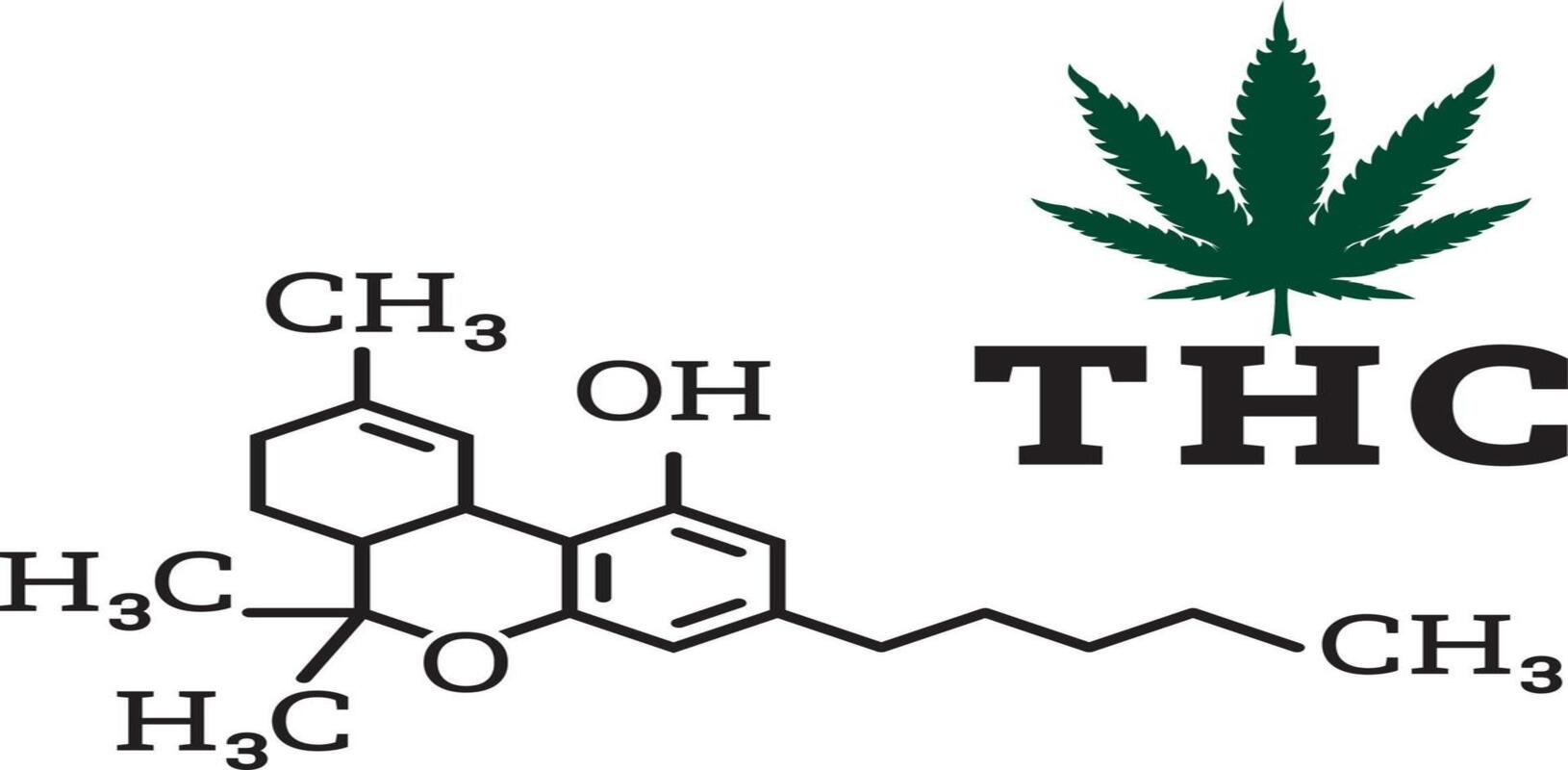
Personal factors and THC
The effects of THC will be different for everyone, depending on the THC potency potential of the cannabis product, method of consumption and amount consumed. Other personal factors that may affect your experience include your:
- age, sex and weight
- health history and existing mental health conditions
- genetic makeup
- previous experience with cannabis and frequency of use
- personality and current mood
- metabolism and how much food you’ve consumed recently
These personal factors, as well as how much and the way you consume it, also affect how long THC will remain active in your body. While the effects can take up to 24 hours to fully disappear, THC can be detected in your bloodstream for seven days or more.
Understanding THC concentration
Concentration, or potency, refers to the amount of THC in a cannabis product. Cannabis in its fresh form contains tetrahydrocannabinolic acid (THCA), the non-active version of THC. When cannabis is decarboxylated — through heating to a high temperature, drying or curing — the acid molecule (the “A” in THCA) drops off, and the THC is activated.
You’ll find the THC content on the packaging of any cannabis product sold on the6ixcannabis.ca and at our Authorized Retail Cannabis Store in Ajax. It’s listed in at least two ways:
- “THC,” referring to the amount the product has when purchased
- “Total THC,” which is the content it has when it’s heated
The THC content is expressed in milligrams, either per package, gram or unit, depending on the product.
Choosing cannabis products based on THC potency
When buying THC products, keep the following points about potency in mind:
- Consuming small amounts of THC can produce pleasant and non-harmful effects, but consuming large amounts may produce unpleasant and potentially harmful effects.
- The same product can vary in potency from batch to batch. Check labels carefully to be sure of the actual THC content in the product you selected.
- Choose cannabis products with low THC concentration and/or at least a 1:1 ratio of THC to CBD.
- Start low and go slow, leaving enough time that you can feel the effects of cannabis before taking more.
Check out Tips for Responsible Use for other ways to manage your experience.
What Is CBD?
Cannabidiol, or CBD, is a common compound of cannabis that’s typically not intoxicating — but can affect the mind and body. Discover how CBD works, potential effects, ways to select products and more.
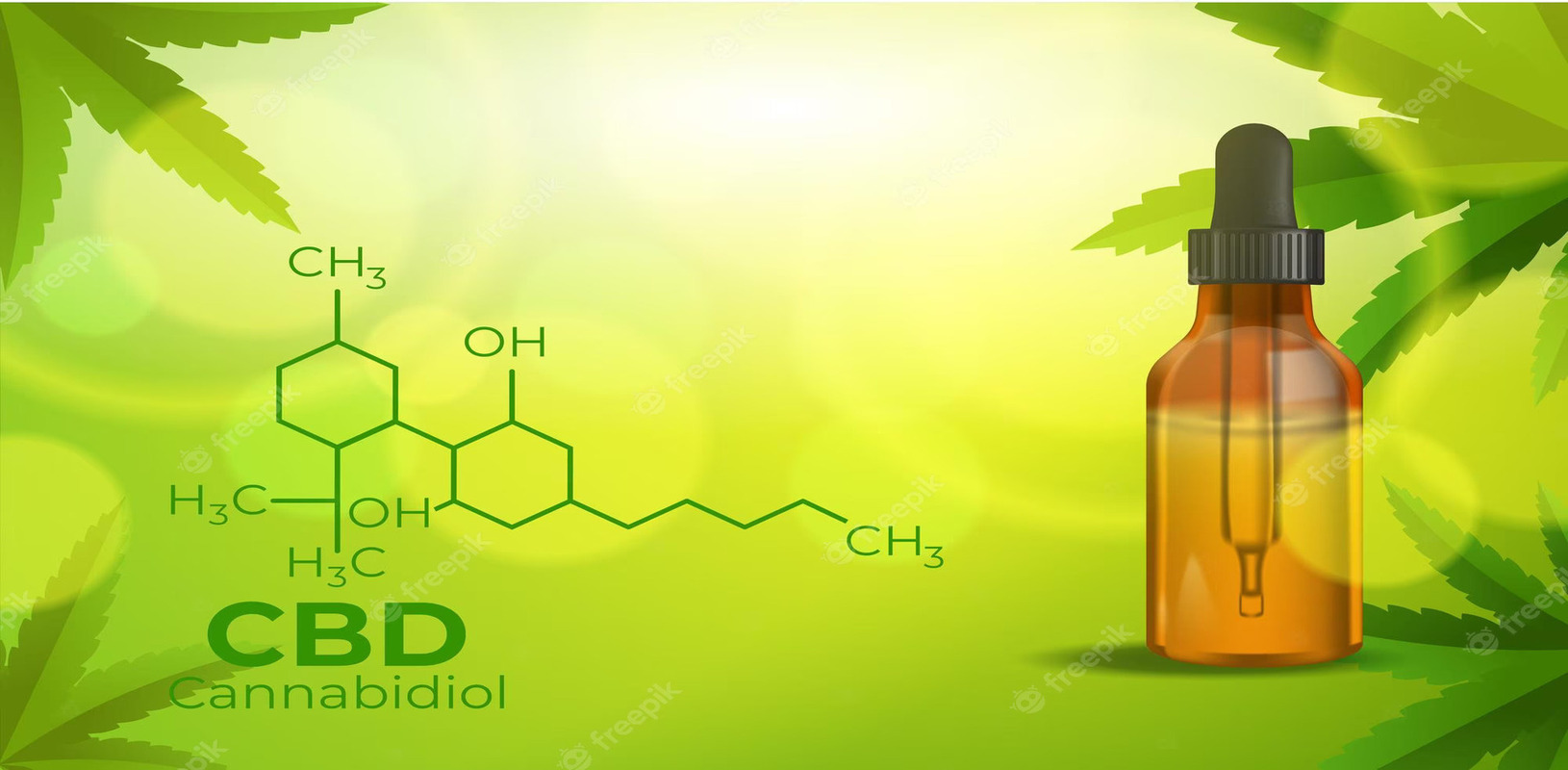
Cannabidiol, or CBD, is the most common cannabinoid of the 100 or so naturally occurring chemical compounds found in the flower of hemp plants and many cannabis cultivars. CBD has little to no intoxicating effect — but it can have an effect on both mind and body when consumed.
Alongside tetrahydrocannabinol or THC, it is a highly regulated controlled substance in Canada. In Ontario, products containing CBD can only be sold to adults aged 19 and over through legally authorized sources, like the 6ix Cannabis Dispensary located in Ajax, Ontario.
Read on to learn about how CBD works in the body, its potential effects, how CBD and THC differ, and what can happen when you consume CBD along with THC.
How CBD works
Research into understanding how CBD works is ongoing, but we do know that like THC, the cannabinoid interacts with the body’s endocannabinoid system (ECS). Research suggests the ECS plays a role in protecting your nervous system, activating your immune system and regulating your recovery from stress and your overall health.
Your ECS is made up of two basic components:
- Endocannabinoids — cannabinoids your body produces naturally
- Cannabinoid receptors — present in nearly every part of your central nervous system and brain, and many other areas of the body, including your immune system
Endocannabinoids fit into the body’s cannabinoid receptors like a key in a lock and help move messages from cell to cell. Studies suggest that CBD blocks the production of an enzyme that regulates and destroys excess endocannabinoids, allowing more of them to circulate in the body. That increase in endocannabinoids can produce effects on the body and mind.
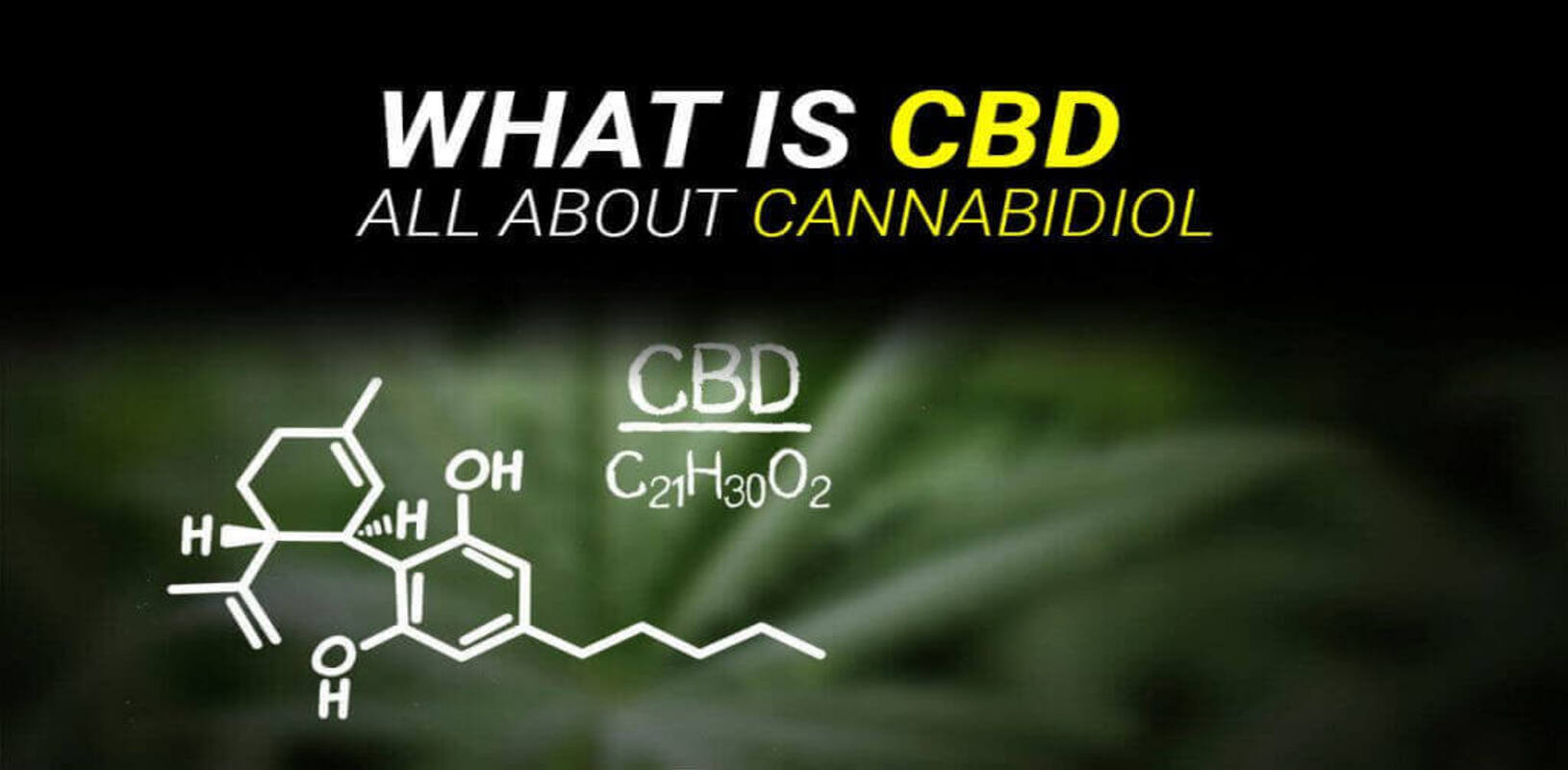
Potential effects of CBD
Consumers and Licensed Producers have attributed various side effects and health benefits to consuming CBD — such as nourishing and soothing skin, promoting calm and sleepiness, easing pain — but not enough research has been done to back up these claims. Further study is needed to determine its efficacy, appropriate doses and how it works long-term.
Clinical trials are currently underway in Canada to explore the effectiveness of CBD in treating many conditions, such as:
- anxiety disorders
- withdrawal from substance dependence
- post-surgical pain
- pediatric epilepsy
- cancer-related symptoms
- chronic headaches in adolescents
- pain from Parkinson’s disease and multiple sclerosis
Recent studies also suggest CBD may alter the effects of other natural chemicals in our bodies, including:
- serotonin, which modulates mood and stress
- adenosine, which impacts our sleep-wake cycle
- vanilloid, which contributes to pain modulation
As with THC, how long CBD remains active in your body and the length of time potential effects may last depend on personal biological factors, such as your genetics, personality, age and sex, as well as how much you consume and the method of consumption.
Understanding CBD content in cannabis products
Also known as potency, CBD content refers to the amount of CBD in a cannabis product. In its fresh form, cannabis contains cannabidiolic acid (CBDA), the non-active version of CBD. When cannabis is decarboxylated — through heating, drying or curing — the acid molecule (the “A” in CBDA) drops off, and the CBD is activated.
You’ll find the CBD content on the packaging of any cannabis product sold on OCS.ca and at Authorized Cannabis Stores. It will be listed in at least two ways:
- “CBD,” referring to the amount the product has when purchased
- “Total CBD,” which is the content it has when it’s heated
The CBD content is expressed in milligrams, either per gram, package or unit, depending on the product format. Unlike THC, there are no legal limits on the amount of CBD a product can contain.
Types of THC & CBD products
As one of the main cannabinoids in cannabis, CBD can be found in all types of cannabis products. It’s a highly regulated substance in Canada — a licence from Health Canada is required to legally produce and sell CBD. In Ontario, products containing CBD can only be sold to people aged 19 and over through Authorized Cannabis Stores and OCS.ca.
Legal CBD undergoes the same testing and regulation as cannabis products that contain THC. Regulation guarantees cannabis products are produced, manufactured and packaged in a consistent and transparent way that keeps you safe and helps you make informed decisions about consumption.
All types of cannabis products can contain THC and CBD in varying potencies. How you choose to consume cannabis may also influence your experience, particularly the timing of the onset and the duration of the effects.
The following chart lists just some of the THC and CBD products available for legal sale, along with the ways they can be consumed and their potency potential.
Dried Flower
The part of the cannabis plant that’s dried and sold as loose buds or pre-rolls
Consumption Method: Inhalation, typically as a pre-roll or rolled joint, or by using a bong or dried flower vaporizer
Potency Potential: From little to minimal (0 to 1.99% THC) to very strong (>20% THC)
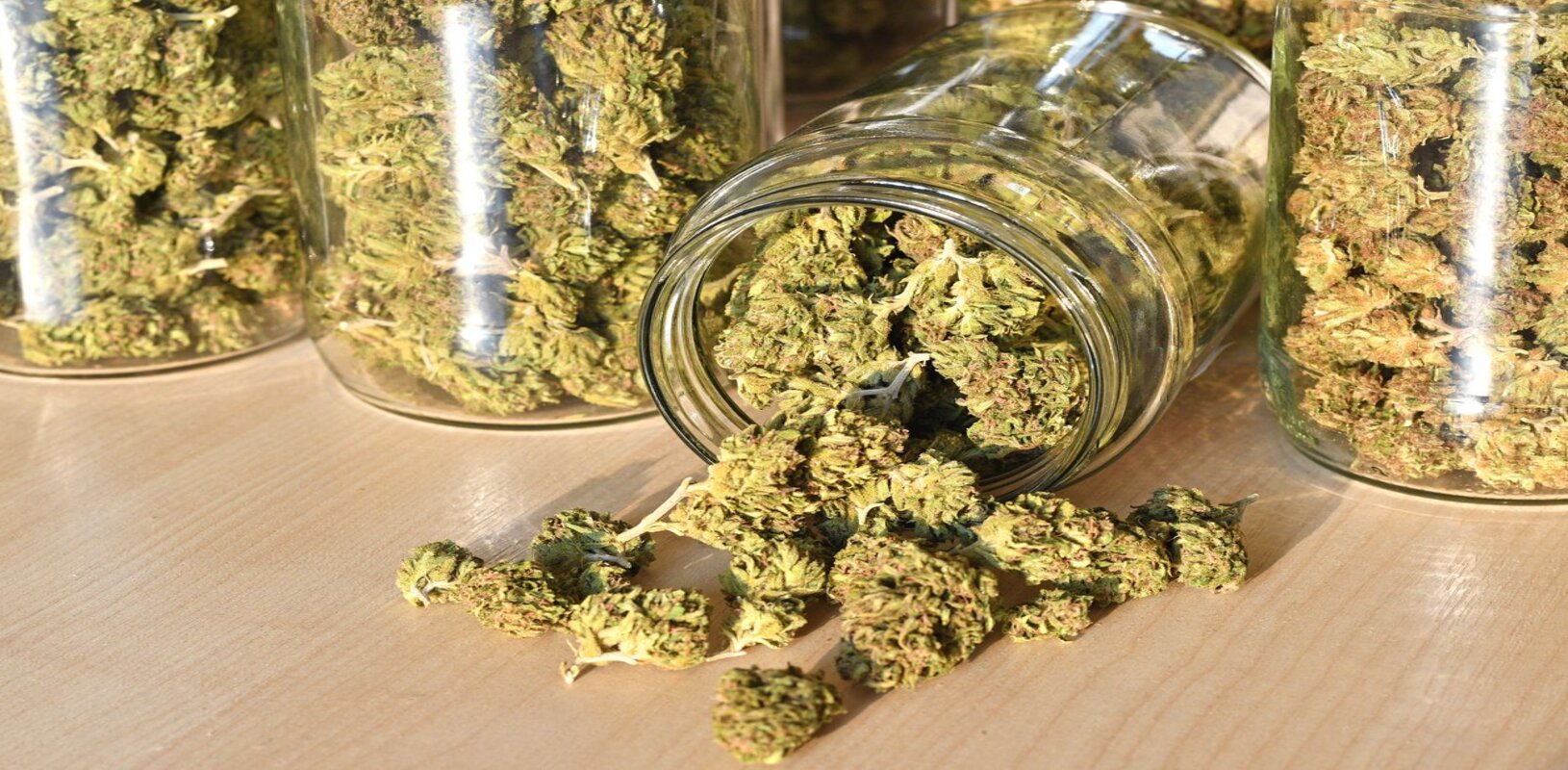
Edibles
Food or drink infused with cannabis, such as soft chews, chocolates and sodas
Consumption Method: Ingestion (eating or drinking)
Potency Potential: Up to 10 mg THC per package
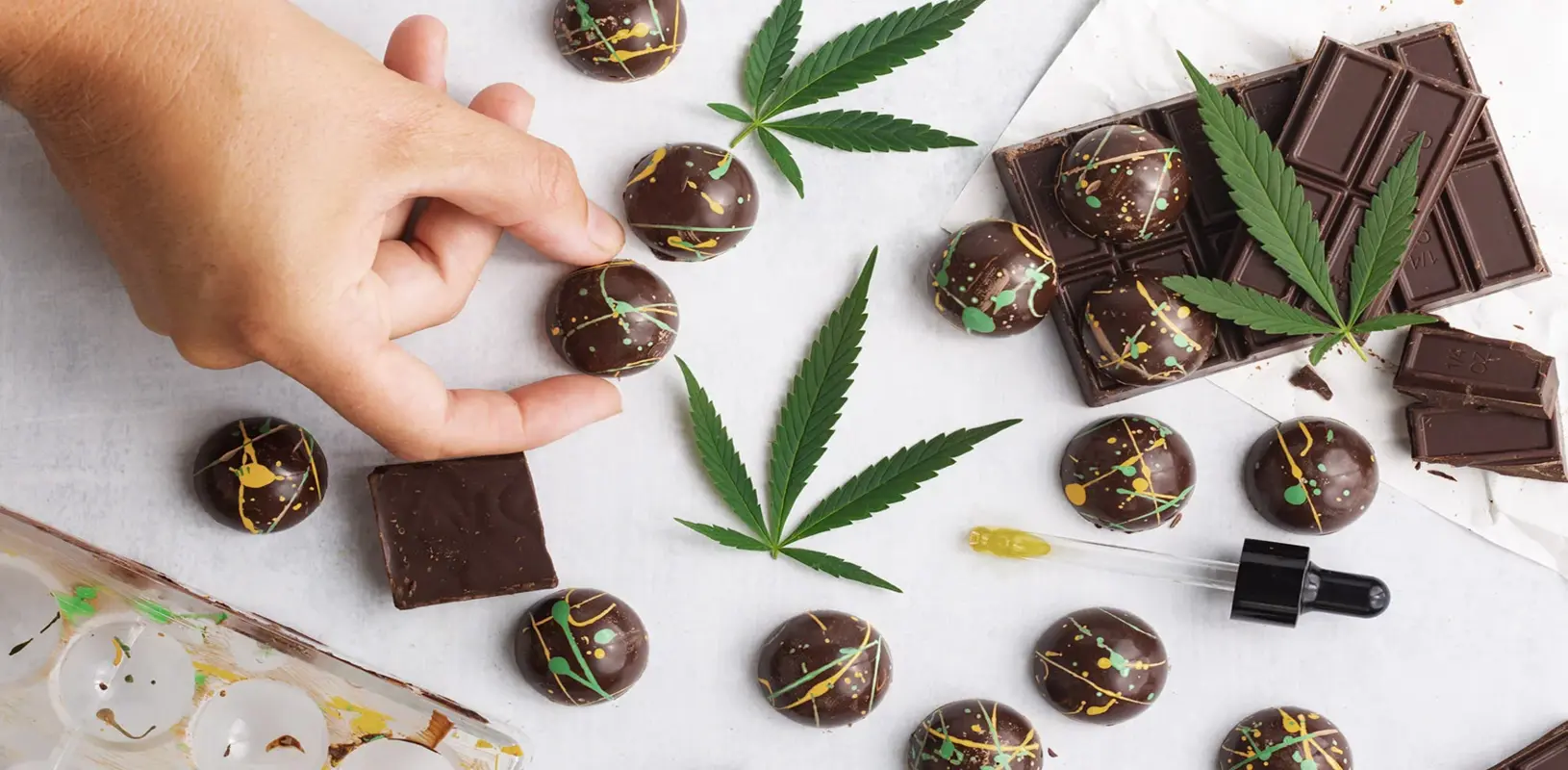
Concentrates
Solid or liquid products — including kief and sift, hash, shatter, wax, resin, rosin and distillate — are produced by processing cannabis flower into a concentrated form
Consumption Method: Inhalation, through a vaporizer, vape pen, pipe, dab rig or other device
Potency Potential: Up to 1,000 mg THC per package
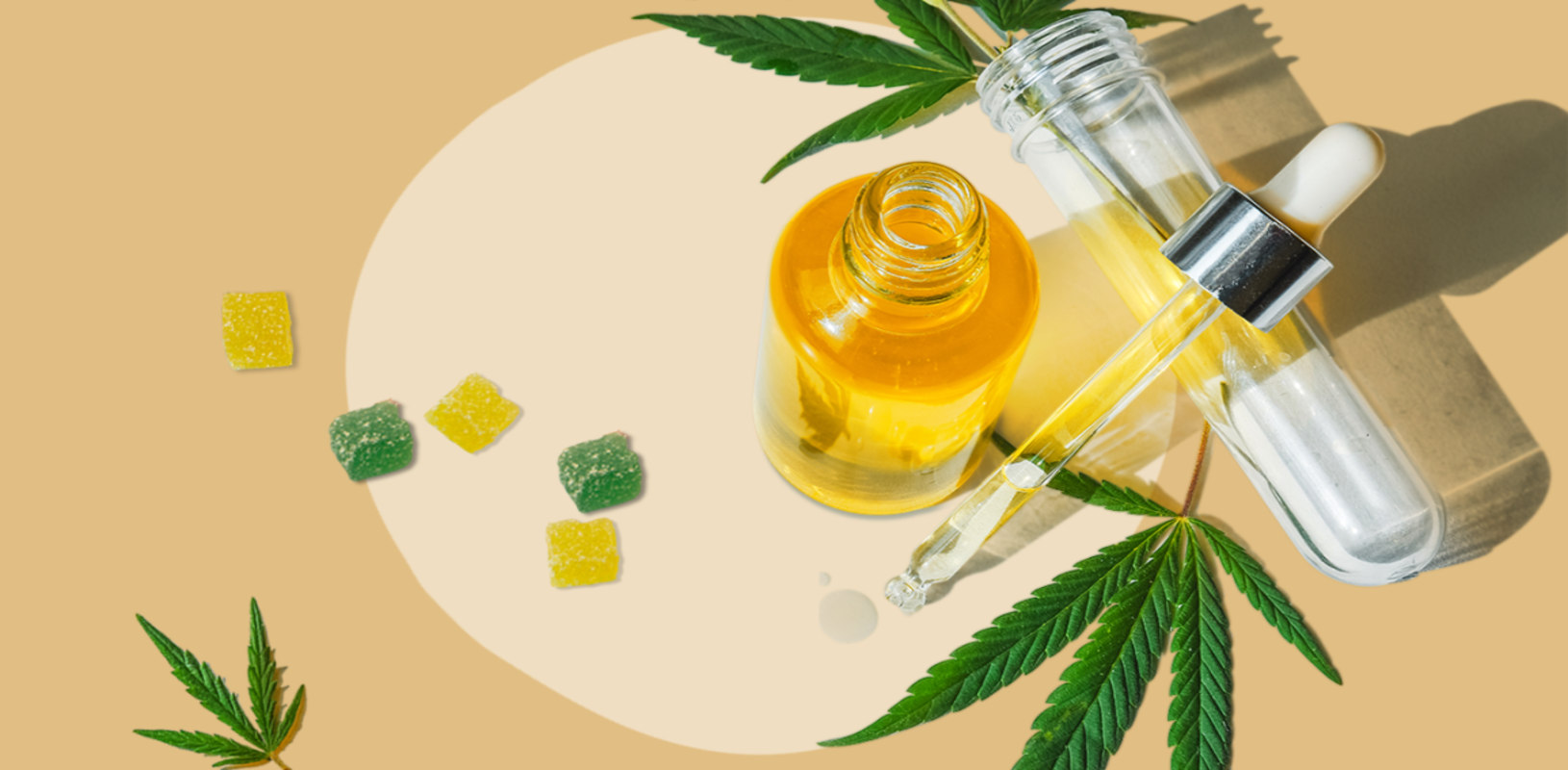
Extracts
Concentrated cannabis is made into a product that’s dissolved in the mouth, such as lozenges, sublingual strips, oils and capsules
Consumption Method: Oral absorbtion (dissolved into the membranes of the mouth)
Potency Potential: Up to 1,000 mg THC per package
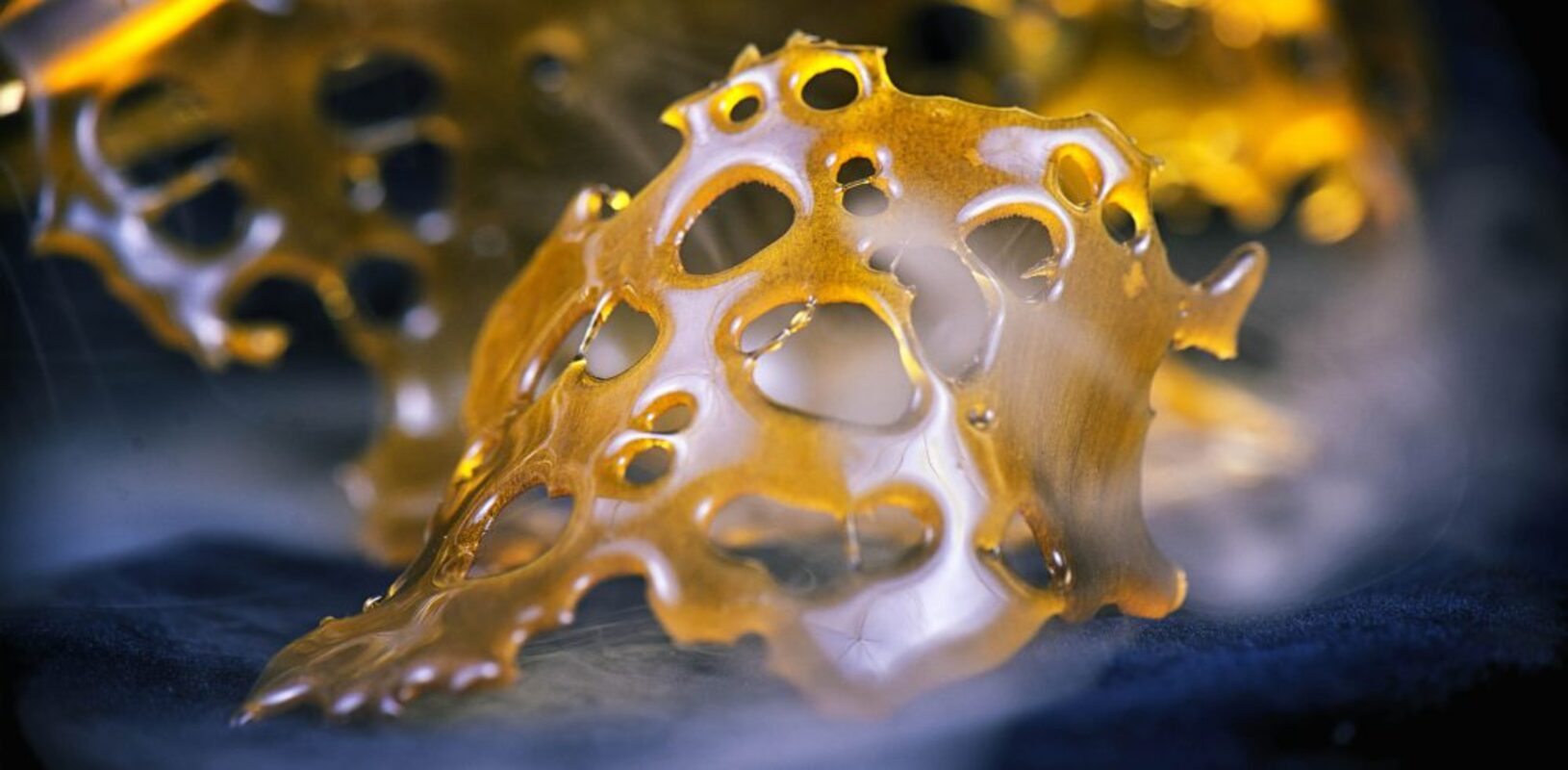
Topicals
Cannabis-infused products that are topically applied, such as creams and lotions
consumption Method: Topical application (absorbed through skin, hair or nails)
Potency Potential: Up to 1,000 mg THC per package, but rarely produces psychoactive effects
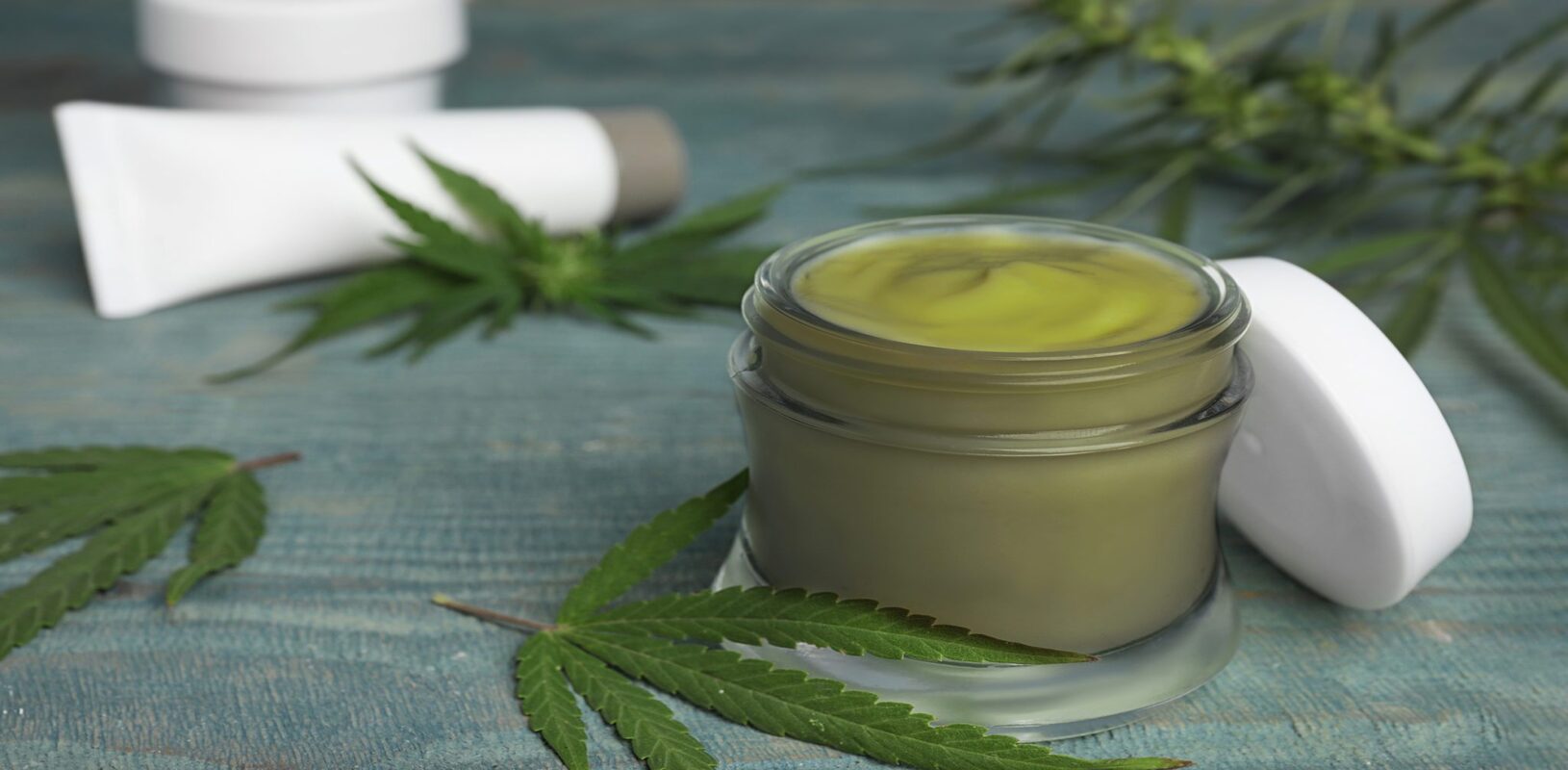
THC vs. CBD: What’s the difference?
While THC and CBD (scientific name: cannabidiol) both affect the body and mind when consumed, there are differences in how they act. Here’s how:
- THC typically produces intoxicating effects, which CBD does not.
- Instead of replacing the body’s natural endocannabinoids, as THC does, CBD increases or improves the production of our own endocannabinoids.
- Some studies show that in combination with THC, CBD appears to reduce some of the psychoactive effects of THC when the two are present in at least equal amounts (or there is more CBD than THC).
Understanding the differences between THC and CBD can help you choose the right cannabis products for you.
Looking To Buy Legal Weed In Ajax? At The 6ix Cannabis, We offer In-store Shopping, Pickup, And Delivery
Even though the world of cannabis has continued to experience changes every day, certain fundamental truths still hold. For example, decades ago (even when weed was illegal), people preferred getting their stash from one dealer they could trust and depend on, which is still the case today. Most marijuana enthusiasts, after trying out a new cannabis store and loving it, tend to stick by it for as long as possible.
In this digital world, where you can access hundreds of cannabis dispensaries from the comfort of your home, make sure your weed vendor is the best option you have.
A good dispensary provides a wide variety of products under the same roof while maintaining a sense of culture, style, and class. A good dispensary is also conveniently located and can facilitate delivery right to your doorstep.
At 6ix Cannabis, we pride ourselves in operating one of the best marijuana stores in the city and even the country. We are locally-owned and managed, which explains why you can feel the pulse of the city in everything we touch. If you’re looking for the best spot to buy weed in Ajax, look no further!
